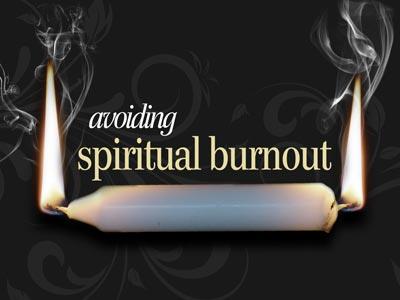-
Permission To Feel Despondent Series
Contributed by Ed Vasicek on Nov 15, 2010 (message contributor)
Summary: In Psalm 88, God gives us permission to be fully human, to face the realties of misery rather than deny them, and to pour our complaints, despondency, and miseries before Him in prayer.
Permission to Feel Despondent
(Psalm 88)
1. This is the time of year when many experience a seasonal depression attributed to the fact that the amount of sunlight is declining. We certainly are all familiar with feelings of sadness, grief and loss. But at the deepest level, we can get to the point of despondency.
2.One definition of the word despondent is, "in low spirits from loss of hope or courage."
3. Some people are frequently despondent over things that would not make most people feel despondent; view themselves as losers and victims.
4. But then there are experiences which are so overwhelming that they can leave most of us with that sense of hopeless misery.
5. Genesis 37:35 expresses such a time in the life of Jacob, when he thought his favorite son, Joseph, had been killed: "Then all his sons and all his daughters arose to comfort him, but he refused to be comforted. And he said, "Surely I will go down to Sheol in mourning for my son."
6. Psalm 88 is a Lament; the psalmist is completely and utterly overwhelmed with despondency. This psalm begins and ENDS with a despondent psalmist. Heman lived in David’s day, and was the grandson of Samuel, the Prophet. He was called “the singer” and was one of the three chief musicians during David’s reign (I Chronicles 15:17-19).
7. I wonder if he had a leprosy-like disease that meant he had to leave home and live outside the town in the wilderness.
8. Derek Kidner writes, “There is no sadder prayer in the Psalter. Here, as with other laments, the reader’s part need not be that of spectator, whatever his current mood, but that of companion in prayer to the depressed or outcast people whose state of mind
the psalm puts into words: words which are for use.”
10. Some understand this Psalm to reflect the feelings of Jesus while dying on the cross.
Main Idea: In Psalm 88, God gives us permission to be fully human, to face the realties of misery rather than deny them, and to pour our complaints, despondency, and miseries before Him in prayer.
I. Heman Still TRUSTS in God (1-2)
Who is Heman? According to the Jewish Encyclopedia, " … grandson of the prophet Samuel; surnamed "the Singer"; a Kohathite (I Chron. vi. 19). He was one of the three chief Levites appointed by David to superintend the musical service in the Temple (ib. vi. 18-30, xv. 17, xxv. 1). He had fourteen sons, all of whom assisted in the choir under their father, and each of whom was the head of one of the twenty-four courses of the Levites established by David (ib. xxv. 4-31). Heman was also called "the king's seer in the matters of God" (ib. xxv. 5), the same term being applied to Asaph (II Chron. xxix. 30) and to Jeduthun (ib. xxxv. 15)
What happened to him? My theory (only a theory): he was diagnosed with a skin disease that meant he had to dwell outside of city limits and not get close to anyone without yelling, "unclean."
A. Being MISERABLE does not indicate a lack of faith (1)
1.Some Christians only see the "rejoice" verses; but faith is not only about fending off miseries through wise and right choices, but rather finding the strength to face them.
2. You can either make the Scriptures oppose one another or you
can integrate them into a whole, here a little there a little.
3. The Psalmist describes God as the God who saves ME, not just others
B. The Psalmist prays because he BELIEVES (2)
• Sometimes the only light you have is that God exists and you can talk to Him in prayer; there is no other light at hand that can help.
II. Heman HATES His Life (3-5)
A. He is OVERWHELMED with trouble (3)
B. He feels like a ZOMBIE (4-5)
III. Heman Feels Like God Has Put Him in HELL on Earth (6-12)
The Psalmist was a minister of music, but in his current state, how could he lead the congregation in song?
He speaks in the language of appearance and feeling (poetry), not fact.
A. CONSIGNED to the lowest pit (6)
B. Under God's WRATH (7)
C. ABANDONED by his friends (8a)
D. TRAPPED (8b-9a)
E. Persistent in prayer, but UNANSWERED (9b)
F. How can he EXALT God in heaven when he feels trapped in hell? (10-12)
IV. Heman PERSISTS in Faith Despite His Distorted Perspective (13-18)
When your mind is determined to be depressed, it selectively chooses to focus on only the negative part of the picture.
A. His prayer and writing of this psalm testify of persistent FAITH (13-14)
B. Looking back, his memories are only NEGATIVE (15-17)
C. He feels so LONELY (18)

 Sermon Central
Sermon Central



